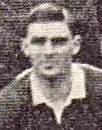 'Paddy' Carolin in 1906. | |||||||||||||||||||||||||||||||||||||||||||||
| Birth name | Harold William Carolin | ||||||||||||||||||||||||||||||||||||||||||||
|---|---|---|---|---|---|---|---|---|---|---|---|---|---|---|---|---|---|---|---|---|---|---|---|---|---|---|---|---|---|---|---|---|---|---|---|---|---|---|---|---|---|---|---|---|---|
| Date of birth | 10 April 1881 | ||||||||||||||||||||||||||||||||||||||||||||
| Place of birth | Alicedale, Cape Colony | ||||||||||||||||||||||||||||||||||||||||||||
| Date of death | March 15, 1967 (aged 85) | ||||||||||||||||||||||||||||||||||||||||||||
| Height | 1.78 m (5 ft 10 in) | ||||||||||||||||||||||||||||||||||||||||||||
| Weight | 74.4 kg (164 lb) | ||||||||||||||||||||||||||||||||||||||||||||
| Rugby union career | |||||||||||||||||||||||||||||||||||||||||||||
| |||||||||||||||||||||||||||||||||||||||||||||
Harold "Paddy" Carolin (10 April 1881 – 15 March 1967) was a rugby union player who represented South Africa and is credited with conceiving both the 3-4-1 scrum formation[1][2] and helping choose the name 'Springboks' for the South African national side.[3] Carolin was the second player ever to serve as captain abroad, following Paul Roos.[4]
Carolin was born on 10 April 1881 in Alicedale in the Eastern Cape and attended Diocesan College in Cape Town. At school he won the award for best all-round sportsman for four years consecutive years, and was captain of both the rugby and cricket teams.[5]
Carolin's first club was Villager Football Club, a Cape Town side.
In 1903 Carolin is selected at centre alongside Japie Krige for the 3rd test against the touring British side at Newlands on 12 September 1903.[6]
He is captain of Villagers when he is chosen as vice-captain for the 1906-07 Springbok tour of Great Britain, Ireland, and France.[5] Roos, Carolin, and team manager J C Carden chose the name 'Springboks' while on tour, prompted by the emblem that the side had worn on the left breast for the first time since the decision to do so had been taken in 1903.[3][7]
In the test against Scotland in Glasgow on 17 November 1906 Carolin became the second player to captain South Africa abroad when Paul Roos had to withdraw from the team.
Carolin is often credited with inventing the 3-4-1 scrum formation in 1906, although he himself thought that fellow Villager Fairy Heatlie had first applied the formation in 1901. Heatlie and Carolin had both attended Diocesan College, although not at the same time.[8] Danie Craven in turn pointed to 'Oubaas Mark' Markotter as the coach who had popularised and adapted the formation.[1] The 1906 Springboks became "the first national team to utilize the 3-4-1 formation".[9]
In all Carolin played in 3 test matches and 15 tour matches for the Springboks. His last test was on 24 November against Ireland at the Balmoral Showgrounds in Belfast, which South Africa won 15 - 12.[10][11]
Carolin also played 9 first-class cricket matches for Western Province between 1902 and 1908. As a right-hand batter he scored 354 runs in 16 innings, and as a right-arm fast-medium bowler he took 30 wickets.[12]
Carolin moved to Moorreesburg to practice law and subsequently became involved in two local sports clubs. With the help of his law partner, Fred Luyt (Springbok, 1910–12), he helped establish Moorreesburg's rugby club (est. 1889) as a force in Boland rugby.[5][13] He coached the local team, which at one time included future Springbok Chris Koch (Springbok, 1949–60), who Carolin moved from wing to prop. In the process Carolin created "one of the very best ball players...amongst all of the world's international tight fives".[14] With a Dr J P du Toit Carolin co-founded the Moorreesburg golf club in August 1912.[15][16]
Carolin died in 1967.[17]
Danie Craven described Carolin as an "outstanding player, captain, and powerful personality".[5]
See also
References
- 1 2 Harris, Tim (2009). Players: 250 Men, Women and Animals Who Created Modern Sport. Random House. ISBN 9780224082778.
- ↑ Dobson, Paul (1994). Doc - The life of Danie Craven. Cape Town: Human & Rousseau. ISBN 9780798133142.
- 1 2 Lehmkuhl, Anne. "Green and gold - our rugby colours". bygonesandbyways.blogspot.com. Bygones and Byways. Retrieved 3 January 2014.
- ↑ Dobson, Paul (1989). Rugby in South Africa. [Cape Town?]: South African Rugby Board. ISBN 9780620141000.
- 1 2 3 4 "Paddy Carolin". genslin.us/bokke/SARugby.html. Enslin's Springbok Rugby Hall of Fame. Archived from the original on 16 December 2013. Retrieved 3 January 2014.
- ↑ "South Africa v Great Britain at Cape Town". ESPNScrum.com. ESPN Scrum. Retrieved 3 January 2014.
- ↑ "Springboks 100 - looking back into history". RuggaWorld.com. Rugga World. Archived from the original on 3 January 2014. Retrieved 3 January 2014.
- ↑ Carolin, Harold William (1990). Lappe Laubscher; Gideon Nieman (eds.). The Carolin papers: a diary of the 1906/07 Springbok tour. Pretoria: Rugbyana. pp. 34–35. ISBN 9780620145015.
- ↑ Nauright, John (1997). Sport, cultures and identities in South Africa (1. publ. ed.). London [u.a.]: Leicester Univ. Press. p. 42. ISBN 9780718500498.
- ↑ "Player Profile - Harold William Carolin". SARugby.net. SA Rugby Union. Retrieved 8 April 2017.
- ↑ "Ireland v South Africa at Belfast". ESPNScrum.com. ESPN Scrum. Retrieved 3 January 2014.
- ↑ "Harold Carolin, South Africa". ESPNCricInfo.com. ESPN CricInfo. Retrieved 3 January 2014.
- ↑ "Famous SACS players". SACSRugby.com. SACS. Archived from the original on 10 October 2012. Retrieved 3 January 2014.
- ↑ Schoeman, Chris (2007). Legends of the ball : rugby's greatest players chosen by Willie John McBride, Frik du Preez, David Compese (1st ed.). Colesberg[South Africa]: CJS Books. p. 201. ISBN 9780620369626.
- ↑ "Moorreesburg Gholfklub vier 100 jaar [Moorreesburg golf club celebrates 100 years]". Die Courant. 24 April 2013. Retrieved 3 January 2014.
- ↑ Pretorius, Herbert (23 April 2013). "Bokke, krieket en die Moorreesburg-gholfklub [Boks, cricket and the Moorreesburg golf club]". Die Burger. Archived from the original on 3 January 2014. Retrieved 3 January 2014.
- ↑ "Rugbyspringbokke na wie straatname in Danville, Pretoria vernoem is (vervolg)" (PDF). Pretoriana - Magazine of the Old Pretoria Society. 64: 7. December 1970. Retrieved 2 January 2014.